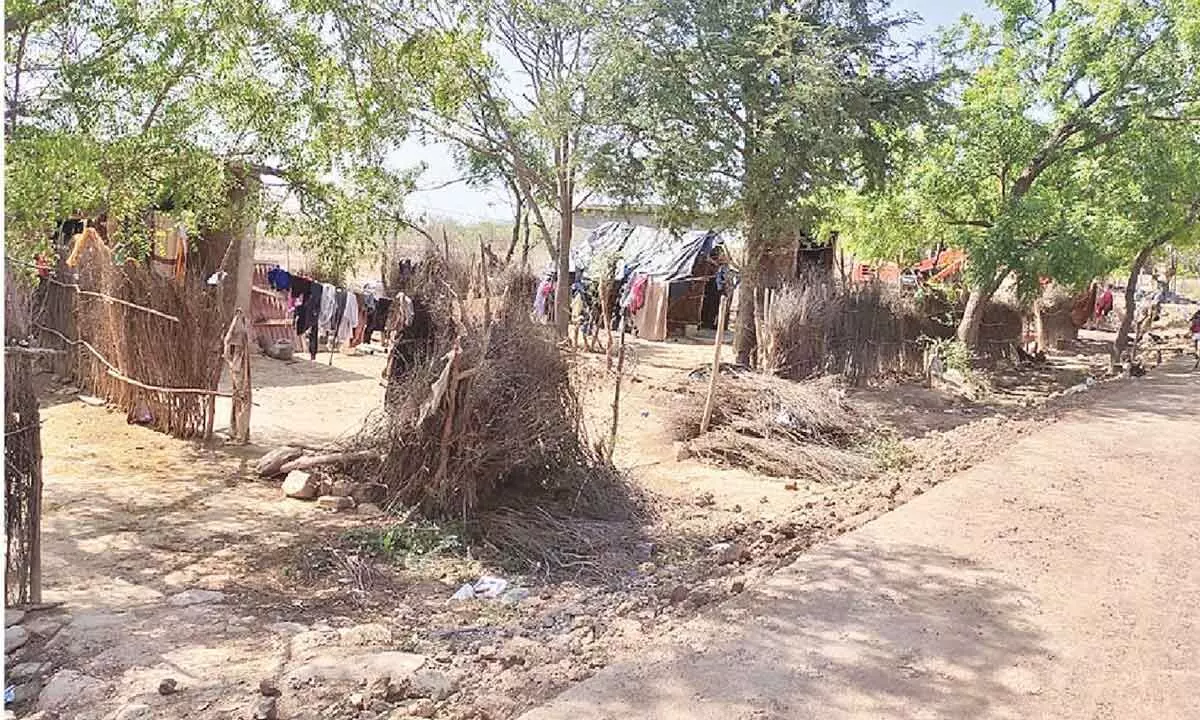Live
- MLA Yennam unveils Hans india calendar
- Rythu Bharosa soon after Sankranti festival says Uttam Kumar Reddy
- PURE EV expands footprint in state
- Get Munneru retaining wall ready by July 15 says Ponguleti Srinivasa Reddy
- Priyanka Gandhi’s birthday celebrated
- Swami Vivekananda lauded as eternal inspiration to youth
- ‘Sannapureddy’ in race for BJP chief post
- Take steps to reopen SKIT under JNTU
- CM reaches Naravaripalle on a 4-day visit
- Actor Ajith waves Indian flag after win
Just In
Chenchus to benefit from special project with MGNREGS


Panchayat Raj and Rural Development department is about to conduct a review meeting this week, to reintroduce a similar project to provide 180 work days per person for Chenchus
Ongole : The discontinuation of the MGNREGS-Chenchus Special Project in 2021 has increased food insecurity and forced migration among the tribal people. The Panchayat Raj and Rural Development department is about to conduct a review meeting this week, to reintroduce a similar project to provide 180 work days per person for Chenchus.
LibTech India is a collective team of engineers, social workers, and social scientists who have worked in Telangana, Andhra Pradesh, and other states for the last ten years.
The team prepared an analysis report on the Mahatma Gandhi National Rural Employment Guarantee Act employment data for the period of April 2023 to September 2024, of the Chenchus from the Dornala and Yerragondapalem mandals in the Prakasam district, and Atmakur mandal in the Nandyal district, which are home to more than 50 per cent Chenchu population.
The analysis, which included detailed fieldwork in 20 Chenchu villages, has revealed a significant decline in MGNREGA participation among Chenchu communities in Andhra Pradesh, following the termination of the specialised support project.
Despite the potential for substantial income generation, Chenchu household participation in MGNREGA remained notably low. In Dornala, only 44 per cent of eligible households participated in the scheme from April to September 2024, while Atmakur and Yerragondapalem recorded 54 per cent and 84 per cent participation rates respectively.
The situation stems from the 2021 discontinuation of the MGNREGS-Chenchu Special Project, which had previously provided tailored support including 180 working days per year per worker, compared to the standard 100 days per household. The shift from state-managed systems to centralised administration has resulted in multiple challenges, including delayed wage payments affecting over 60 percent of cases, administrative hurdles, and cultural and accessibility issues.
Many Chenchu households do not have job cards, and the cards of those who had them are possessed by the field officials. The Chenchus employment statistics are usually mixed in the Adivasi employment statistics with the ITDA, and the officials do not take an interest in isolating Chenchu-specific data, to take up initiatives for better employment under the MGNREGA. That is why its impact on Chenchu households has been severe, with average annual MGNREGA earnings of just Rs 12, 000 compared to a potential Rs 48,000 if fully utilized. This income gap has contributed to increased food insecurity and forced migration among community members.
Meanwhile, the energy minister Gottipati Ravikumar recently visited the Chenchu hamlets in the Yerragondapalem assembly constituency. He inspected the solar energy setup installed in the hamlets, which brought electricity into those Chenchu households for the first time, and assured to install a similar setup in the remaining hamlets in the Tiger Reserve also. He announced that the state government is considering reintroducing the special project, which provides job cards and extra workdays to the Chenchus.

© 2025 Hyderabad Media House Limited/The Hans India. All rights reserved. Powered by hocalwire.com






